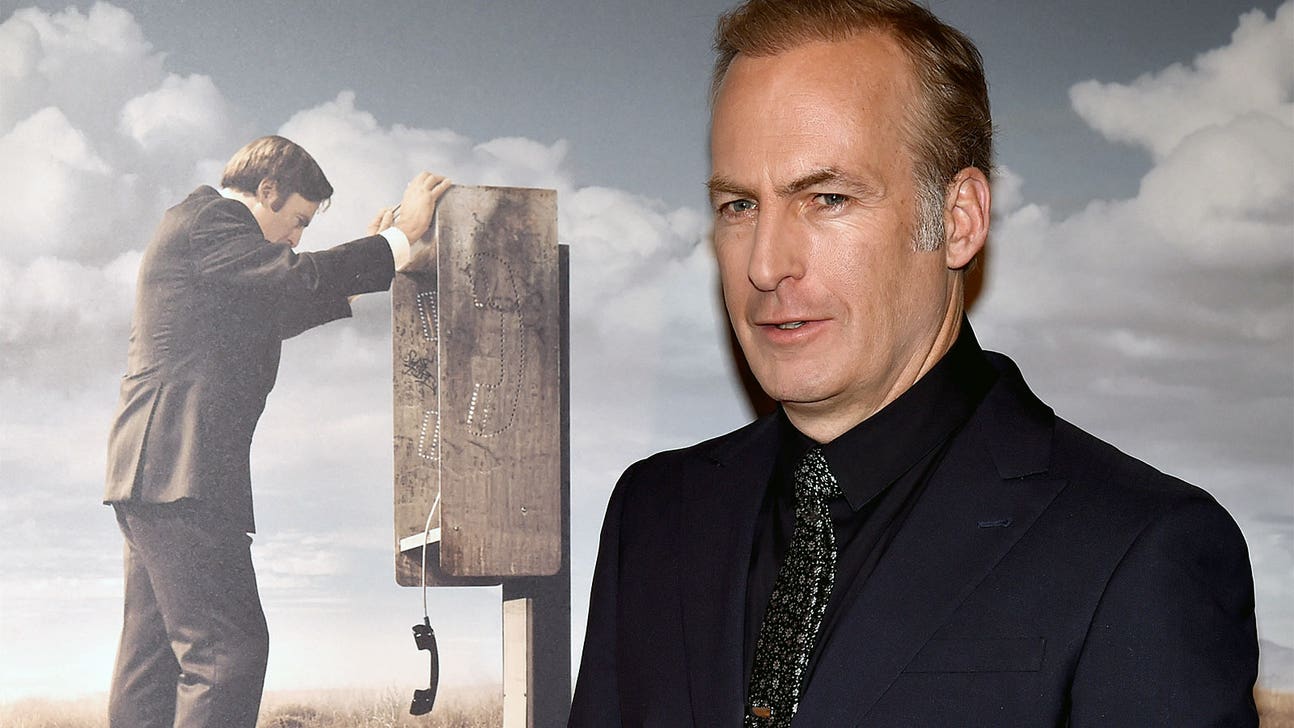
You know what happened. The question is, can you live with it? (Mike Ehrmantraut)
Why were Philadelphia police officers knocking on Mike's door to close "Alpine Shepherd Boy" last week? That was the question we all had following the episode and last night, "Five-O" answered it in the strongest episode of the series to date. This is the episode Jonathan Banks will submit for Emmy consideration, and it's also the one for which he might receive a supporting actor nomination. It might also be the episode that wins him that honor. Holy Albuquerque was he good.
Better Call Saul and its big brother, Breaking Bad, are almost entirely about the people that inhabit their respective worlds. But, perhaps most of all, they're concerned with self-realization and the deterioration of rationalization. That's a bundle of big words that basically mean these shows are at their best when the characters on screen come to grips with who they are and what they've done. From Walter White in the final episodes of Breaking Bad finally understanding that despite any thoughts to the contrary, he was an evil, selfish, dangerous man, to Saul Goodman hiding out as a Cinnabon employee in Omaha and looking back to his past, these are complex figures with simple motivations.
"Five-O" was almost entirely focused on Mike Ehrmantraut and his backstory, which is one I've always wanted either show to delve into further. He was a former Philadelphia police officer, as was his son, Matt. "Matty" was killed in a drug bust gone wrong inside a crack house, although his two partners, Officers Fensky and Hoffman, survived the ambush. Matt's death left his wife, Stacey, both a widow and a single mother. A week after the murder, Mike retires from police work and three months later, Stacey moves to Albuquerque. How do we know all these specifics in the timeline?
Jimmy McGill spilled lukewarm coffee on one of the Philly cops and Mike pilfered the notes, and then later read them alone in one of those scenes where facial and expressive acting reaches a completely different level. Mike knows the entire truth, but we don't, at least not at the mid-way point of the episode. However, by the end of the hour, we know everything.
Matt wasn't dirty, despite his wife's suspicions he might have been, among many others. Mike was dirty. Fensky was dirty. Hoffman was dirty. According to Mike, everyone in the precinct and in most precincts was dirty. When the two officers offered to split the spoils of kickbacks and bribes with Matty, he was conflicted, so he went to his father. In the final moments of "Five-O," we see an emotionally decimated Mike Ehrmantraut admitting to his daughter-in-law, Stacey, that he was responsible for convincing Matt that he would be safe if he kept his mouth shut and went along with the illegal activity. Apparently, Matty wasn't convincing enough, seemed torn when he answered his partners, and two days after, they killed him.
Mike instinctively knew it, pieced it together, and lured Fensky and Hoffman into a situation where he confronted them, feigned being massively drunk, and let them think they could execute him to keep him quiet. He revealed it as an act just before he shot both of them to death. The next day, he took a train to New Mexico to begin a new life in Albuquerque, close to Stacey and her daughter. Of course, his granddaughter will later be the girl he tries to secure money for through his dealings in Breaking Bad.
Nothing about the story itself is particularly original or full of twists or misdirection. From the interrogation scene in Saul's present to the flashbacks and everything in between, "Five-O" had no interest in deception. We were supposed to think that Mike had probably murdered the two officers who killed his son, long before he all but said the words out loud. I've seen this kind of tale before, told in different formats, but I've never seen it presented anywhere close to this effectively.
Banks was unreal throughout the entire hour. As good as he was on Breaking Bad, I think this may well be his finest performance on any AMC product. If it isn't, it's definitely on the short list. He showed the gruff side, the tough side, the belligerent side, and then displayed human emotion in those final scenes that rivals any from a male television actor in recent memory. It was an hour where we could finally get a glimpse into the man Mike Ehrmantraut is and how he became the person we've watched for the last several years. This was an AWESOME episode.
Again, Better Call Saul is a study in self-realization where the audience knows the truth before the characters on screen. We've seen Jimmy McGill fight against "Slip and Fall Jimmy" and we've seen a family attempt to convince itself their embezzlement was justified. We also know Chuck is eventually going to have to deal with his issues. Last night, we saw Mike Ehrmantraut break down in tears to his daughter-in-law, blaming himself entirely for Matty's demise. "I broke my son," he whimpers. Perhaps the most memorable moment of the episode again reflects the edge of rationalization storytelling that Vince Gilligan and Peter Gould continue to involve us in on a weekly basis. After Jimmy, who said he wouldn't do the coffee move...did the coffee move; he asked Mike why Ehrmantraut knew he would be the lawyer willing to do it. Mike just laughs.
Mike knows what we all know and what Jimmy eventually will come to understand. Jimmy McGill is "that guy." He's always going to be that guy. It's written all over his fake Matlock suit.
I'm @GuyNamedJason. Tweet at me there. I'd sure appreciate it. And I'm sorry. I'm going to have to do my lawyer thing here. What does my client have to do with any of this?